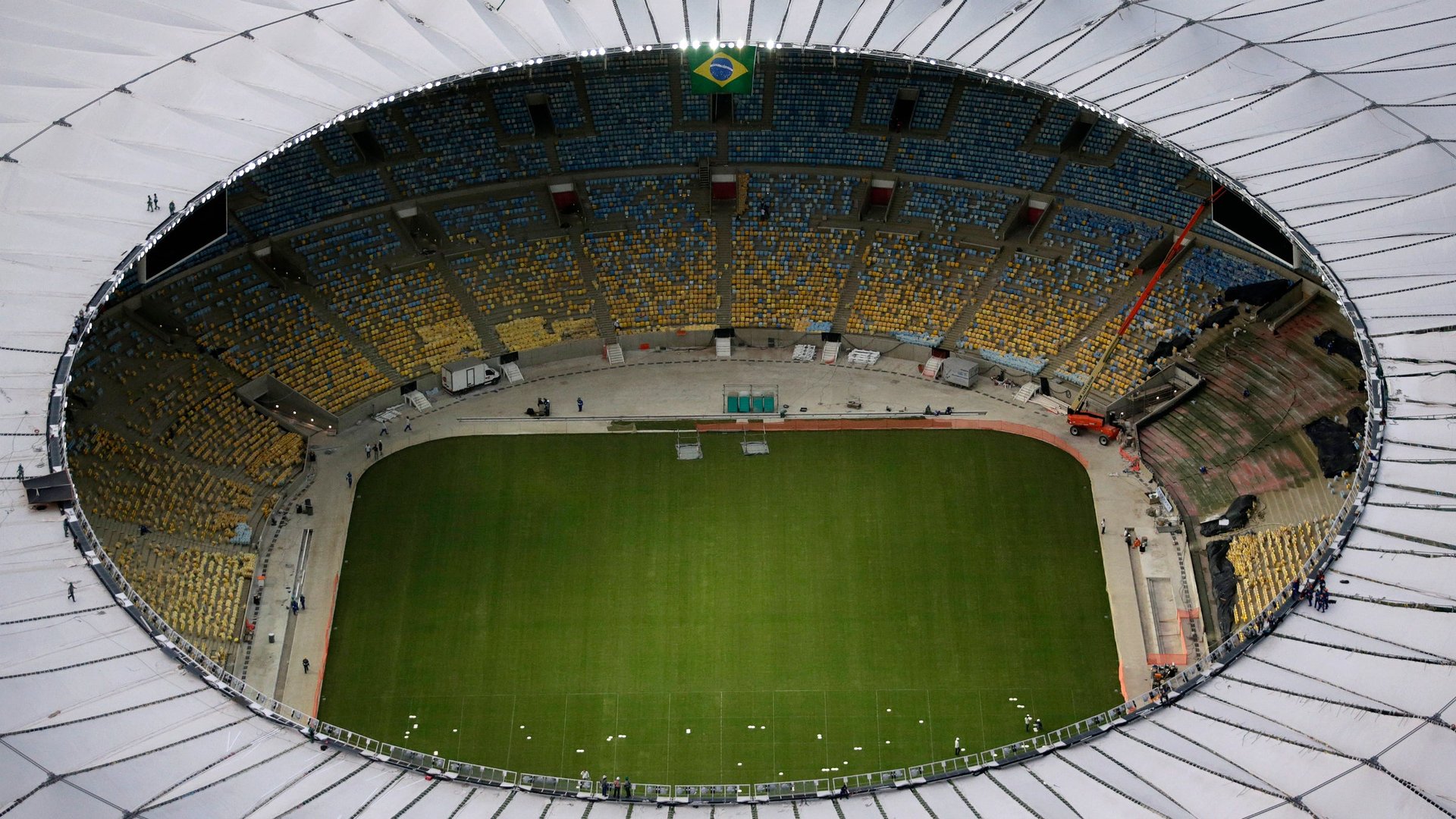World Cup tickets are an opportunity for currency speculators—just never a good one
When FIFA, soccer’s governing body, opened ticket sales for the Brazil 2014 World Cup on August 20, fans went berserk—over 2 million tickets were requested in the first 24 hours. Some of those buyers may have been arbitrageurs looking to make money.


When FIFA, soccer’s governing body, opened ticket sales for the Brazil 2014 World Cup on August 20, fans went berserk—over 2 million tickets were requested in the first 24 hours. Some of those buyers may have been arbitrageurs looking to make money.
The opportunities for arbitrage are a side-effect of what FIFA does to prevent a worse form of profiteering. In order to stop scalping (buying up tickets early and reselling them at a profit) FIFA isn’t actually selling tickets now, but holding a lottery for the right to buy them closer to when the World Cup begins, nearly a year later. If it set the price in just one currency, though—Brazilian reals in this case—exchange-rate fluctuations might give fans from other countries a nasty shock when it’s time to pay up many months hence. And FIFA’s budgeting would also be more unpredictable. So FIFA instead sets the prices in many currencies, committing to exchange rates set in advance. And therein lies the opportunity for arbitrageurs.
The upcoming World Cup has proved especially tricky, since the real has been fluctuating heavily of late. FIFA set its pricing rate at 2 reals to the dollar back in May, based on a year-ahead forecast by 30 international banks. But when the lottery opened the official exchange rate hovered closer to 2.4 to 1, and even dropped as low as 2.45 to 1 on August 21. If it’s still at that level when the tickets themselves go on sale, then a Brazilian who had won the ticket lottery could convert dollars to reals at the market rate, pay for the tickets in reals, and then sell them at the dollar price set by FIFA’s 2 to 1 rate, ending up with about 20% more dollars. On tickets worth hundreds of dollars apiece, that isn’t pocket change.
It’s not the first time this has happened—South Africans enjoyed a similar price discrepancy when the ticket lottery opened for the 2010 World Cup. But FIFA barely flinches. How is that so?
FIFA knows better than anyone that price discrepancies arise, and does its best to minimize arbitrage. Only Brazilians, for instance, are allowed to buy tickets in Brazilian reals. That still leaves a sliver of an arbitrage opening: Locals can buy tickets for three guests as well as themselves. But the three guests have to be named, and any sort of large-scale money-making operation would have to involve not one, but a handful of locals.
Besides, would-be arbitrageurs who bid for tickets now have no guarantee of a profit. The price discrepancy would have to hold for nearly a year, the time between ticket requests and the actual games. In 2010, the price gap had disappeared by the time the tournament began; the South Africa rand rallied shortly after tickets went on sale.
There is, however, a smidgeon of hope for those looking to scheme ticket sales this time around. The real, currently trading at 2.27 to the dollar, has a lot of strengthening to do. “It will be very difficult for the real to get back to 2 reais per dollar,” chief economist at Banco Espirito Santo de Investimentos Jankiel Santos, told Bloomberg last month.